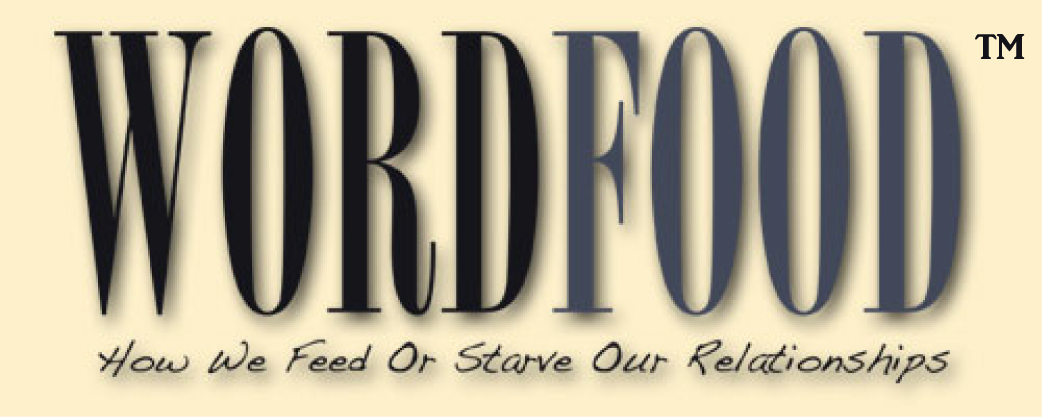It seems that we call need a little boost once in a while, and that we can never get enough positive input from each other. The problem is that we are faced with so much negativity: bosses that are catching us doing something wrong. Parents that are criticizing us. A spouse finding this or that imperfection. Add this to how critical we already are of ourselves and boy, it can be tough getting out of bed in the morning. In a society that demands the best of us, every day, it can be pretty defeating.
That’s why Energy Enhancers, my favorite form of WordFood, are so important. These are the compliments, the acknowledgements that we pay each other – and ourselves- every single day that keep us focused on what’s right. And there is a lot about what we do every day that is right, and good, and worthwhile.
It’s so important to begin with looking at ourselves and giving us the credit we deserve for the work we produce, for taking care of business, for caring for those we love, for doing our best. We know when we don’t. And we know when we fall short. There is no such thing as perfection. Sometimes a little pat on the back goes a long way. This isn’t about grandiosity, this is about taking credit for showing up, for being there, for caring.
The other habit is to offer compliments first. In a world where there isn’t enough acknowledgment going around, it starts with us. A kind word offered to a coworker about showing up early, or doing yeoman’s work on a project can go a long way towards making her day. A reminder to a child that you noticed he cleaned up his room means a lot. Telling a spouse how handsome he looks in that new shirt puts a glow on his face. Just noticing isn’t enough. Saying so out loud makes all the difference. When you’re willing to make someone’s day, it’s amazing how quickly this comes back around to you in some form later on, from someone else.
WordFood Energy Enhancers leave others uplifted and energized. They make up for a rough start to the day. Long hours. Bullying at school. They can soothe hurts and take away insecure thoughts. Beginning with how we speak to ourselves in the mirror in the morning, Energy Enhancers can change the fundamental conversation with our spirit, and that flows out into the breakfast table and to work every day. The effect on those around us is stunning.
When you compliment others, you glow. You feel powerful, because you are affecting others’ state of mind. It is an incredible gift. In the WordFood Diet, if you do this 3-5 times every day, it will transform your world. Try it today and see if your mental and emotional states aren’t improved immediately. What goes around comes around!

